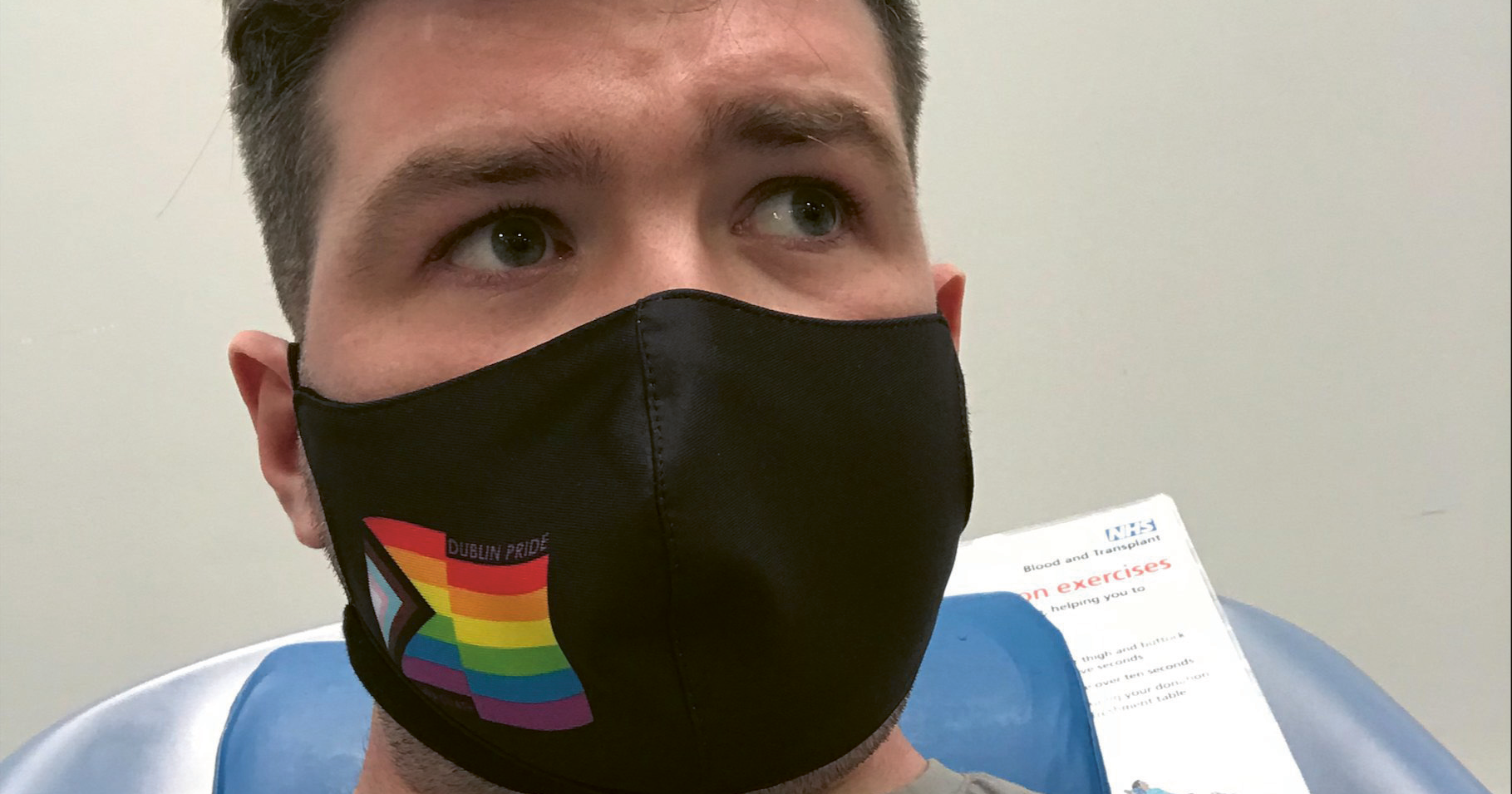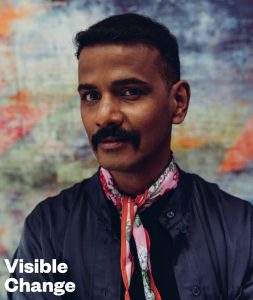Two weeks ago, I flew from Dublin to London to donate blood.
When I returned to Dublin in the very late hours of Thursday night, I got chatting to a man at the Abbey Street Luas stop. He said, with genuine concern in his voice, “You look tired”.
I’d had my fair fill of coffee that day, so I wasn’t sleepy tired. I wasn’t that classic type of tired. But I was tired of this – tired of having to try to find some way of donating blood freely and openly. I was tired of having to leave this jurisdiction just to perform my civic duty and do what is right, to give back to the world that has given much to me already.
About 3am that Tuesday morning my alarm went off. It was time to get up, get dressed, brush my teeth and fix my hair. The taxi for the airport was booked for 3.30. The previous evening, Ryanair had sent an email to people with reservations warning us to arrive at Dublin Airport at least three hours before our flight. It turned out that three-hour window was, to put it mildly, a slight exaggeration on the airline’s part.
After hours of waiting, and running on four hours sleep, I was in the air, looking down over Dublin waking up to its daily routines. Work, school runs, coffee dashes. I sat back in my seat, took a deep breath and thought, “Am I really doing this? Am I really leaving the country to donate blood?”
More waiting at Stansted and then a two-hour bus run to Central London, followed by more waiting. Then a tube trip to my hotel before finally checked in at 1.30pm. I’d been on the go for 10 hours. But the next part would be the real journey. A short two-stop tube trip and I was in London’s West End, just on time for my 3:10 appointment to donate blood to NHS Blood and Transplant.
I wen through the necessary pandemic safety checks, keeping my Dublin Pride mask on the whole time. I filled in the donor form, and not having had sex in the previous three months, I knew I would be eligible to donate blood. I’d also spent at least a month beforehand trying to make sure Irish people could do exactly what I was doing.
I’d tried two years earlier to donate in a different clinic in London’s suburbs while there for a showing of Agatha Christie’s //Witness for the Prosecution//. I was left extremely disappointed that day though, when the clinic staff told me the system didn’t allow for Irish postal addresses to be used. That one obstacle stopped my donation that day. I wasn’t making the same mistake again. I got my guarantee in writing that this time would be different. And it was.
Almost a pint of blood was emptied from me within ten minutes of the needle going into my arm. The staff seemed surprised, but I had prepared. I’d filled up on water and ensured my arms were warm. Everything I could do to ensure the process would run smoothly.
By 4pm I was back on the tube, darting towards my hotel. That night I went to a showing of the //Prince of Egypt// musical. I had done what I had to do. I had done my civic duty, even if the blood was going to the English supply rather than the Irish supply.
The morning I was due to fly home to Dublin, an email from NHS Blood and Transplant landed in my inbox. “As an O negative blood donor you are part of a very special group called First Responders. Your O negative saves lives in emergency situations. First Responders are essential to the emergency services. This is because O negative is the only blood type that can be safely given in emergency situations when there is no time to find out the blood type. What’s more, only 7 percent of the population have this universal blood type.” Of course, O negative is more common in Ireland.
I had given my eighteenth blood donation at the age of 29. It was meant to be my thirty-fourth donation and it was meant to be at home, in Ireland. But I am a relatively sexually active gay man. And no matter how many precautions I take, no matter how many sexual health screenings I go for, no matter how much blood Irish authorities are forced to import from England due to blood shortages here, no matter what the science and basic rationality indicate, I’m automatically banned from donating blood in the Republic of Ireland if I don’t remain sexually abstinent for 12 months before each and every donation.
Had I flown to Manchester in late June this year and donated blood there, my blood would have been imported back into Ireland and used here. But I would not have been allowed to give the same blood directly at a clinic in Dublin, or anywhere else in the Republic. And the reason, well, there is none. Certainly no rational or scientific one. The reason for this position is that a policy matching that in the UK would mean requiring straight people in Ireland to answer questions about their sexual activities and sexual health. And perhaps that could make them feel uncomfortable, so better to just not implement a scientific and robust blood donation system.
I plan to give my nineteenth blood donation before I turn 30, because every donation counts. I don’t want to go to another country to give that blood. I don’t think it’s right or fair, to either me as a donor or patients in Irish hospitals who need my blood.
The Minister for Health has said a review group established by the Irish Blood Transfusion Service to look at this and other policies is due to report back to the Service. It will then be for the Service to make a decision and make a recommendation to the Minister. The Minister will then need to decide whether this unscientific, discriminatory and irrational ban continues.
I want my nineteenth blood donation to be in Dublin, or Galway, or Limerick, or Cork, or anywhere else in this country I have to go to donate openly. I want to give my safe and much-needed blood to patients in Irish hospitals and continue to perform my civic duty…at home, in Ireland.
© 2021 GCN (Gay Community News). All rights reserved.
This article was published in the print edition Issue No. 368 (October 1, 2021). Click here to read it now.
Support GCN
GCN is a free, vital resource for Ireland’s LGBTQ+ community since 1988.
GCN is a trading name of National LGBT Federation CLG, a registered charity - Charity Number: 20034580.
GCN relies on the generous support of the community and allies to sustain the crucial work that we do. Producing GCN is costly, and, in an industry which has been hugely impacted by rising costs, we need your support to help sustain and grow this vital resource.
Supporting GCN for as little as €1.99 per month will help us continue our work as Ireland’s free, independent LGBTQ+ media.

